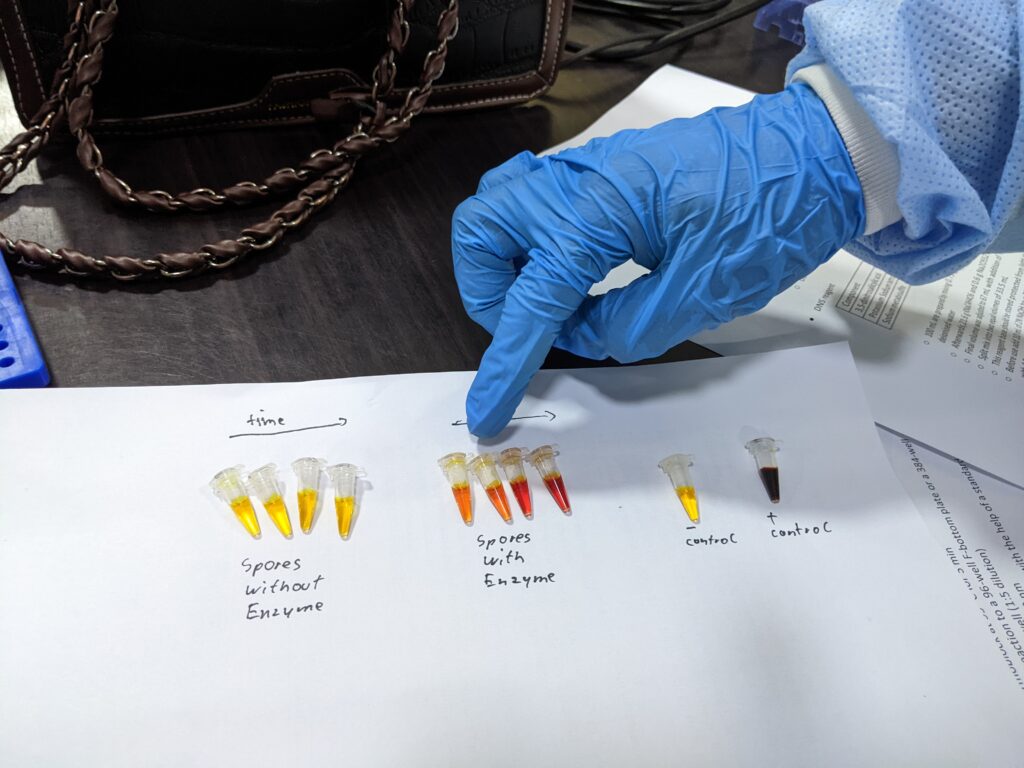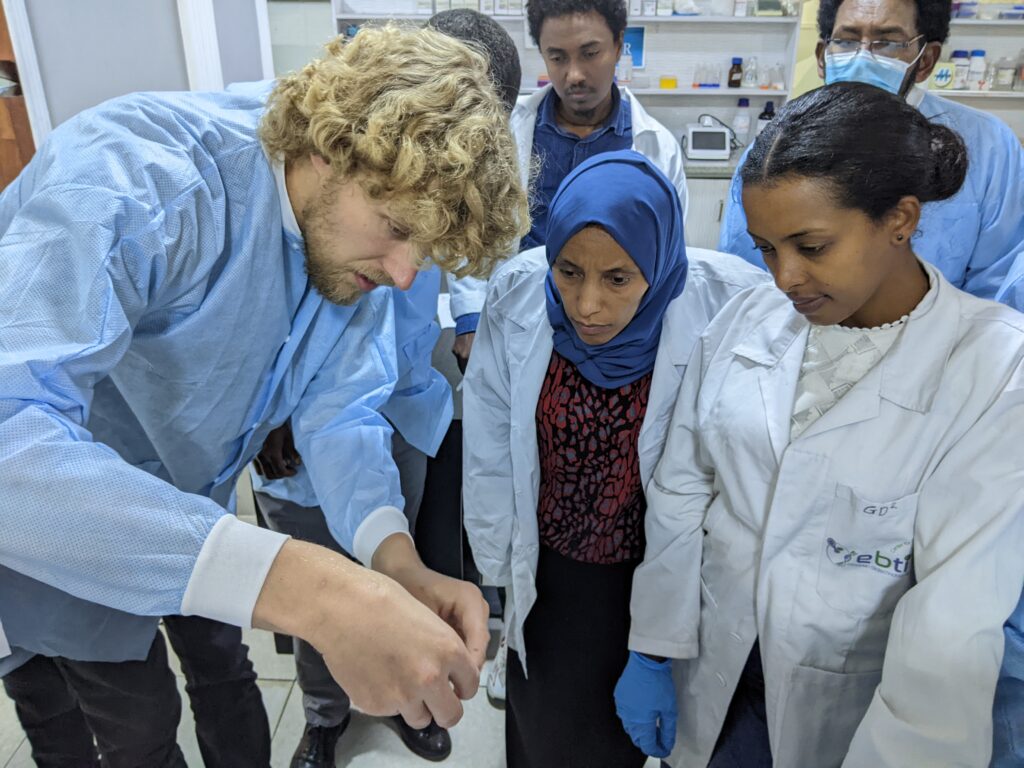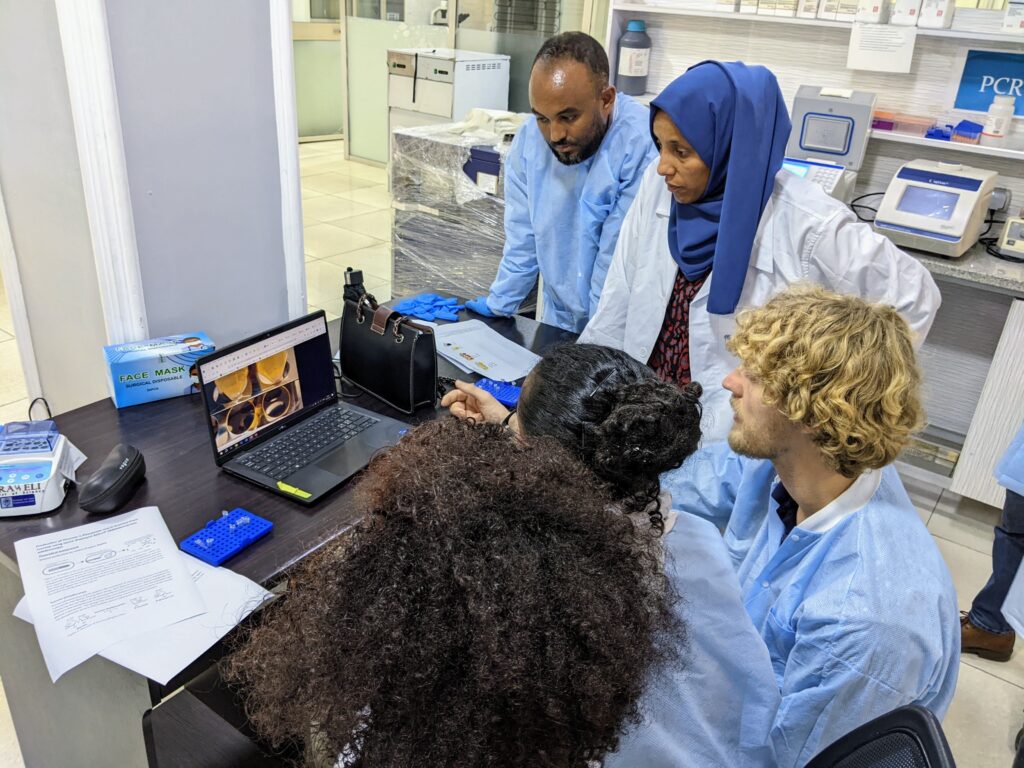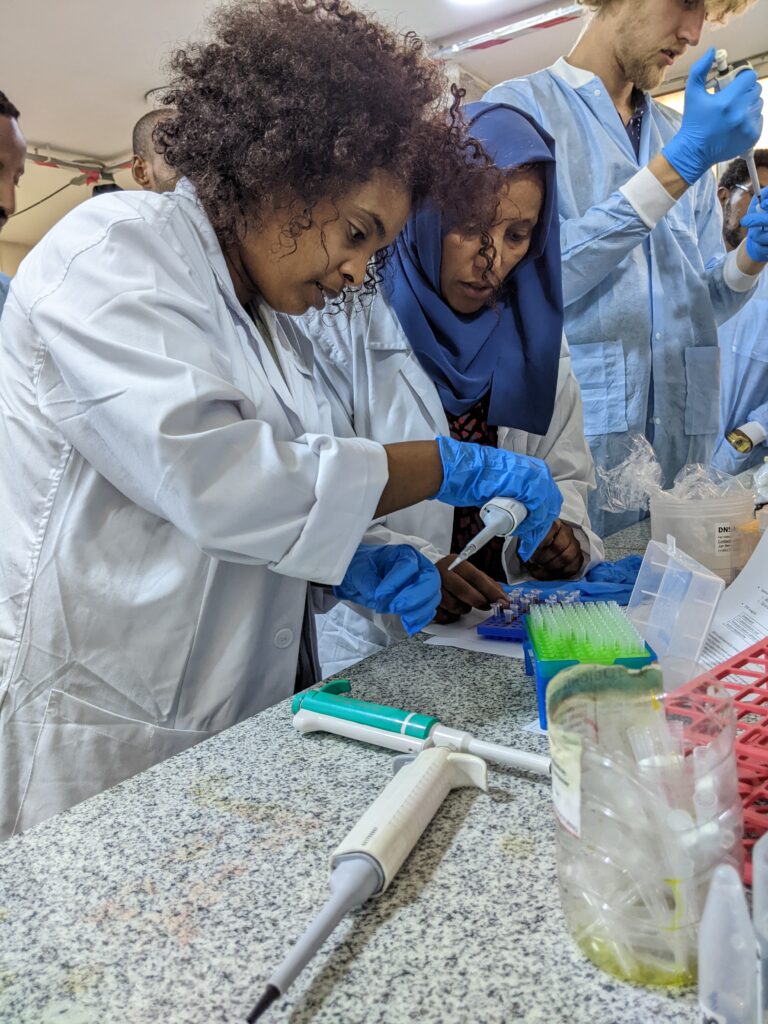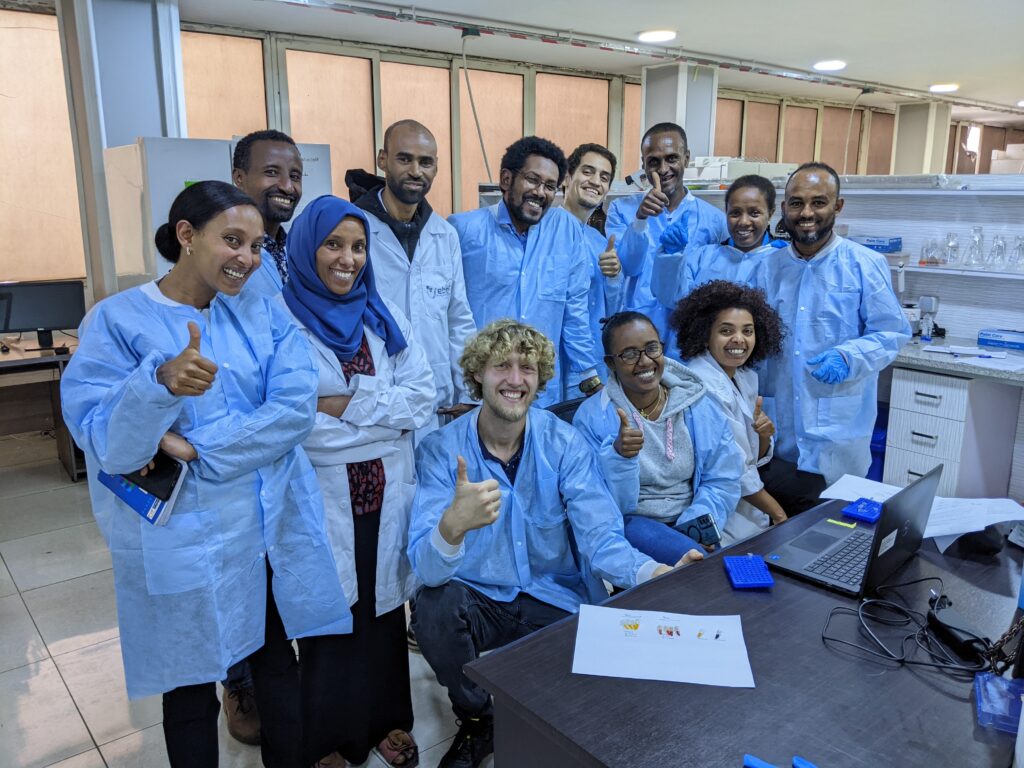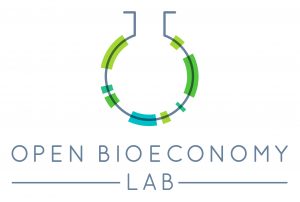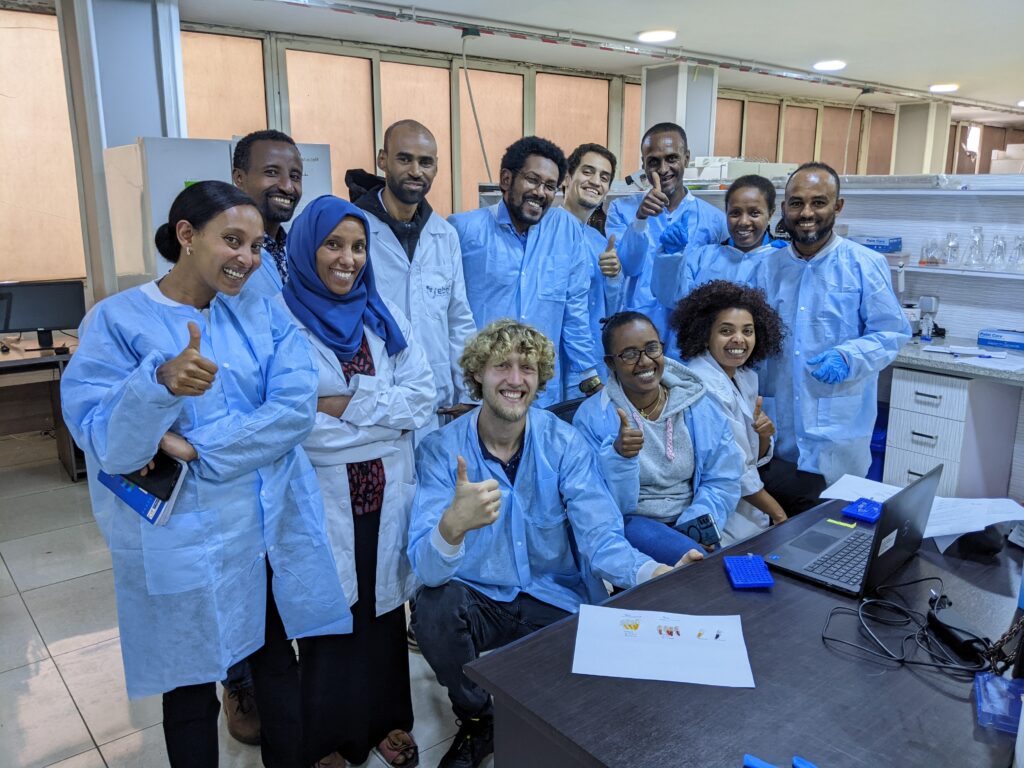OBL members Jenny Molloy and Felipe Buson joined PhD student Benedict Spannenkrebs from Johannes Kabisch’s group at NTNU in Addis Ababa 25-30 Sep 2023 for a three-day training at the Bio and Emerging Technologies Institute (BETin).
The course was organised as part of the “Spores Against COVID” project funded by Volkswagen Stiftung, which addressed the question “How can viral diagnostic enzymes be locally produced in low-resource environments?” by proposing Bacillus spore display as a sustainable production platform for diagnostic enzymes, to enable local manufacturing in Ethiopia.
Training consisted of three parts: “Getting Started with Lab Automation”, “Designing custom automation protocols” and “Bacillus subtilis spore display for sustainable enzyme immobilisation”, with an optional Lab Automation Clinic on how the OT2 robot could accelerate specific experiments. See below this post for resources and presentations.
Around fifteen researchers from over six research institutes participated and were excited about the potential for automation to accelerate their research in using biotechnology to address challenges across different industries in Ethiopia.
I can’t thank you enough for bringing lab automation to my attention. For bioprocessing animal feed research, to develop UV-Vis spectral data-based AI predictive models, the most critical challenge is getting a high-quality labeled dataset. Running the simulation in the OT-2 app, I can fully automate the acquisition of all 11 of my response variables in just one run with a calibration curve and replicates. Now that is the least of my worries. Hail lab automation!
Course Participant
We were fortunate to be present Ethiopia for the celebration of Meskel and observed the Meskel Square celebrations, where a large bonfire is lit as night falls. It was great to cap our collaboration with NTNU with an in-person visit and to build on our long-standing collaboration with BETin. We made time both to socialise with fellow researchers and to discuss future collaboration opportunities to grow a sustainable bioeconomy in Ethiopia.
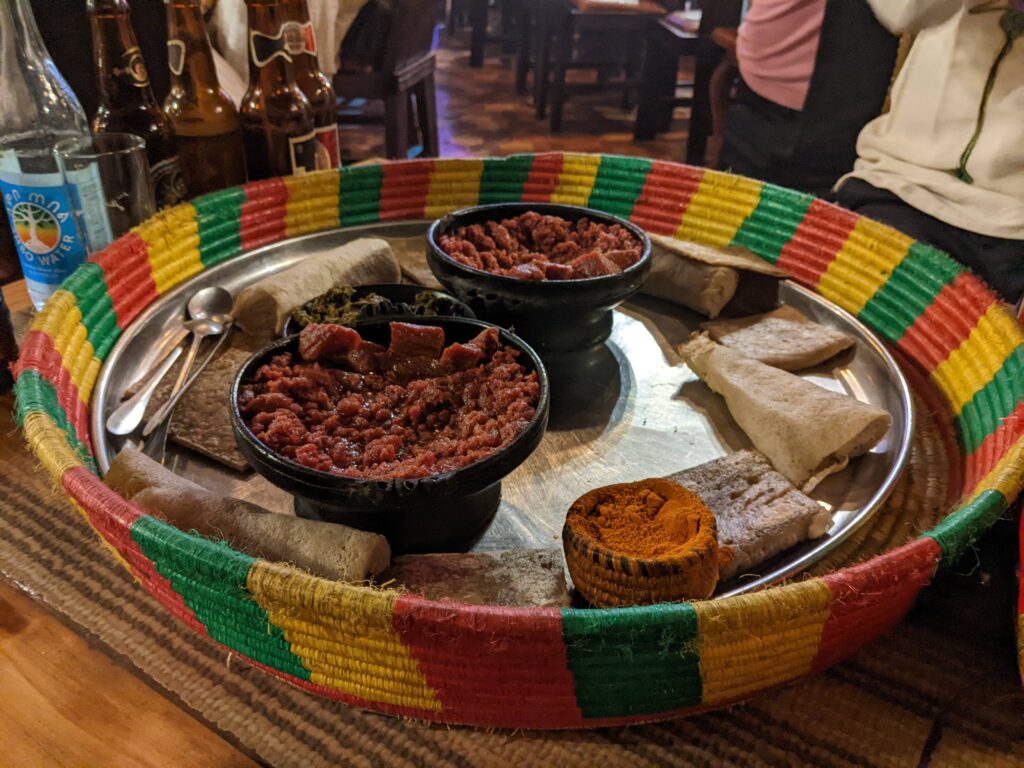
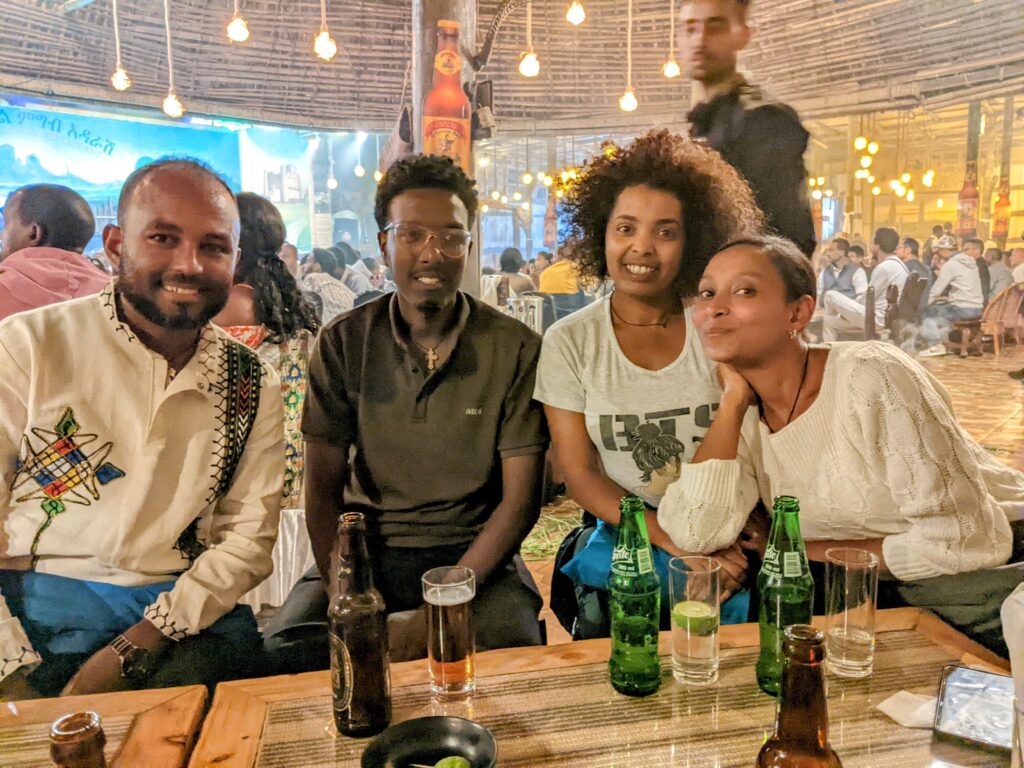
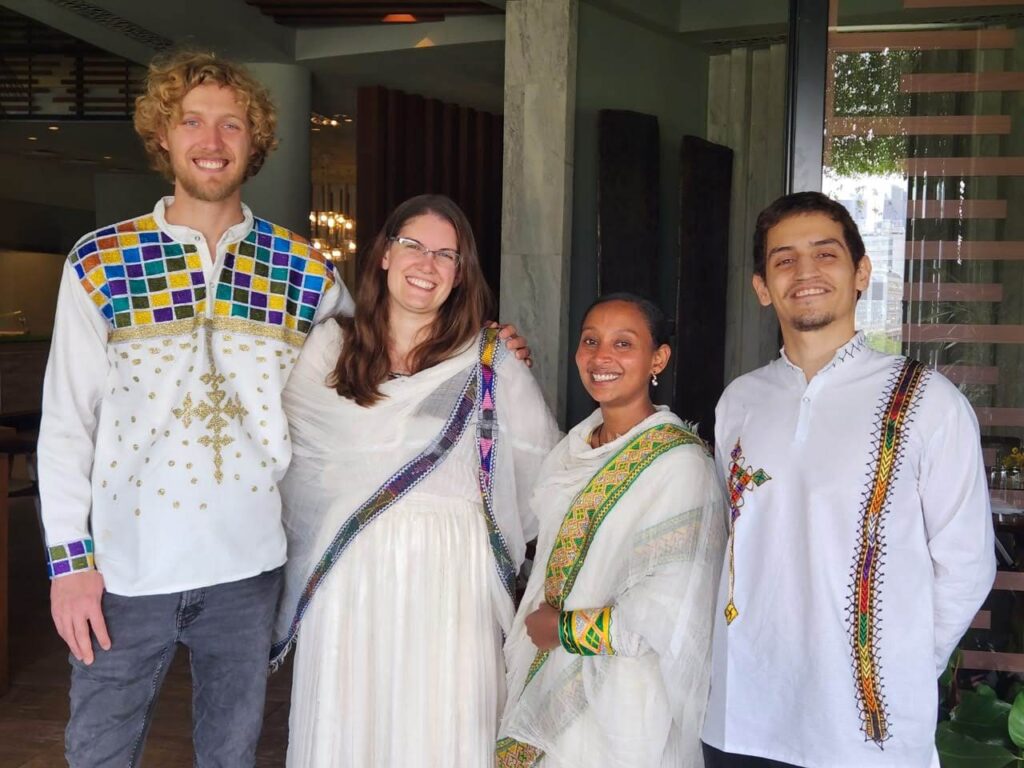
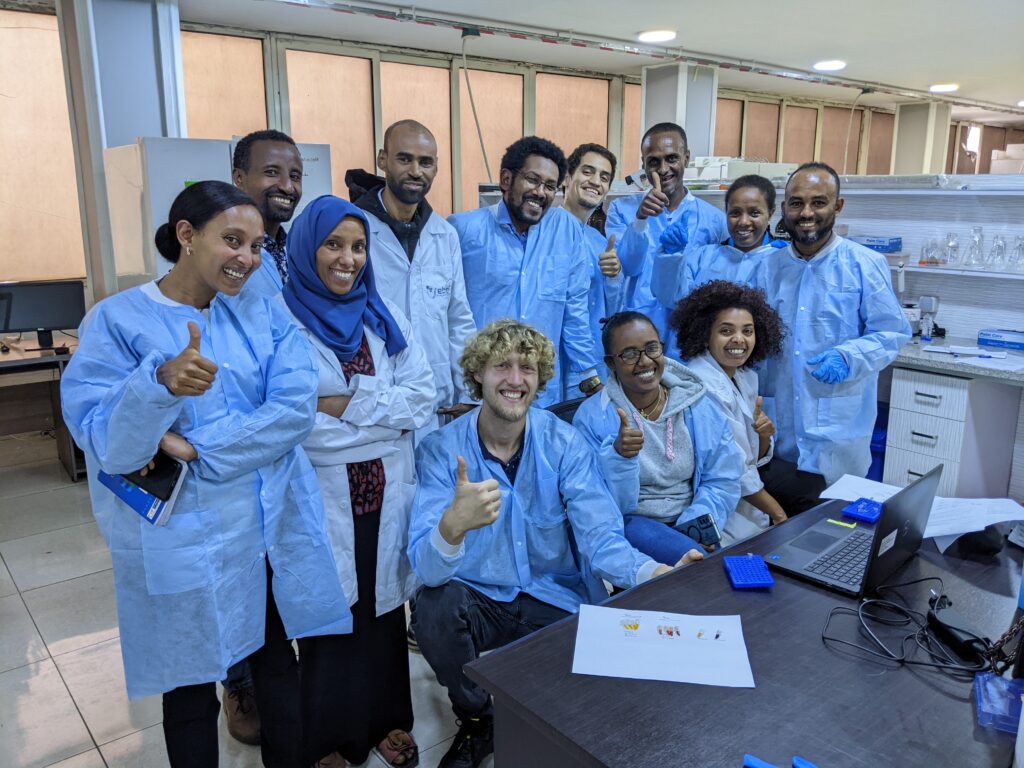


Course Materials: Introduction to Spores Against COVID
Getting Started with Lab Automation
This module featured a seminar introducing lab automation and practicals with computer aided pipetting using Pipette Show and automated serial dilution using the OpenTrons OT2.
We first introduced the Opentrons automation platform, then went through the available hardware for the OT2 robot and how to make simple protocols with the Protocol Designer. We then used serial dilution as an example of a useful and easy to design protocol to get started, and demonstrated it working on the robot.
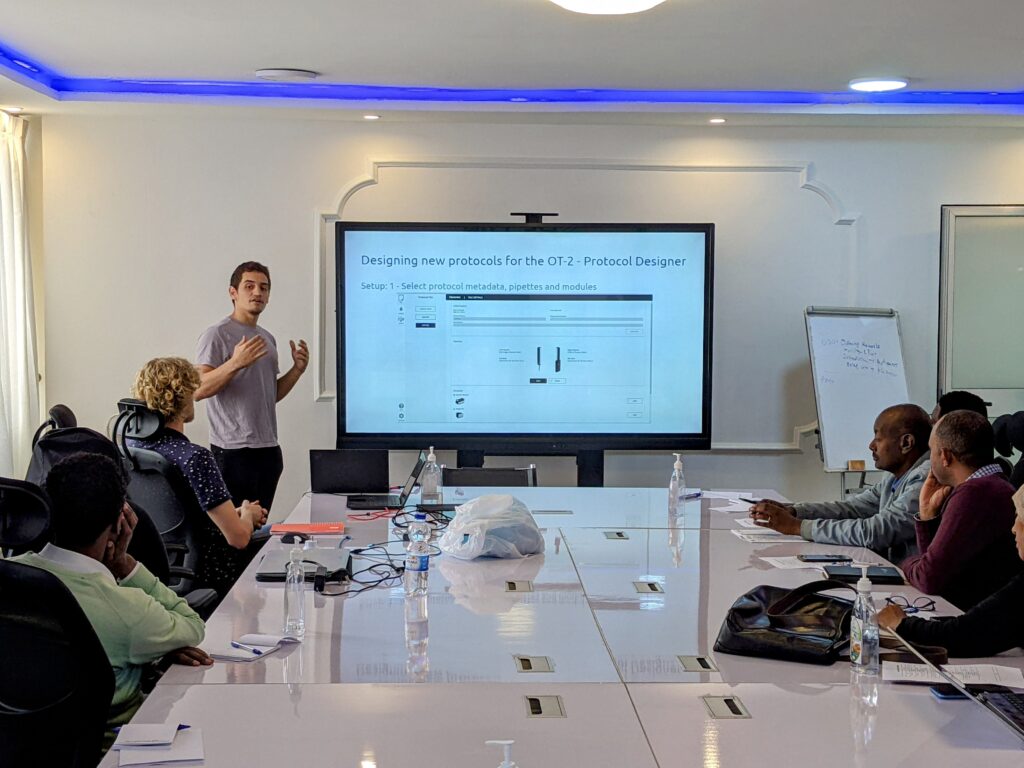
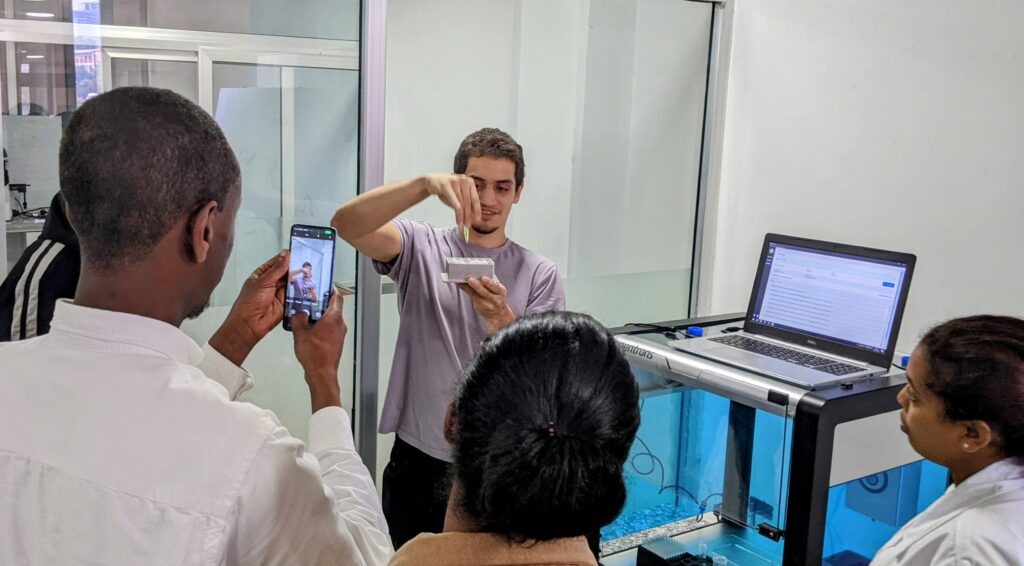
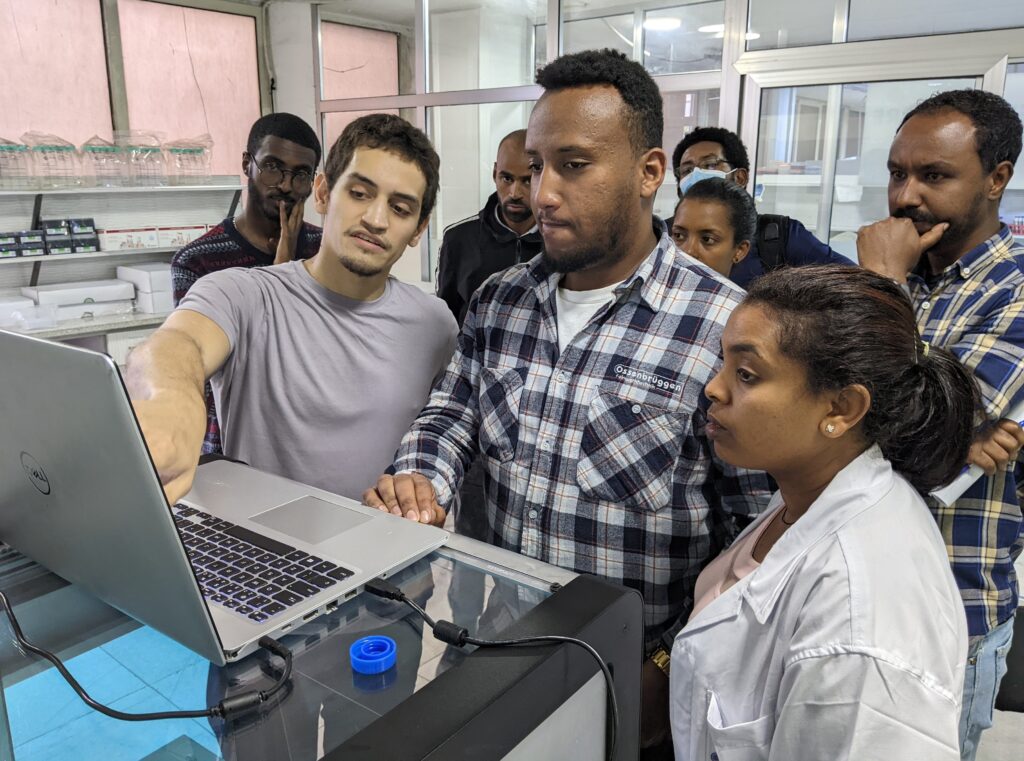
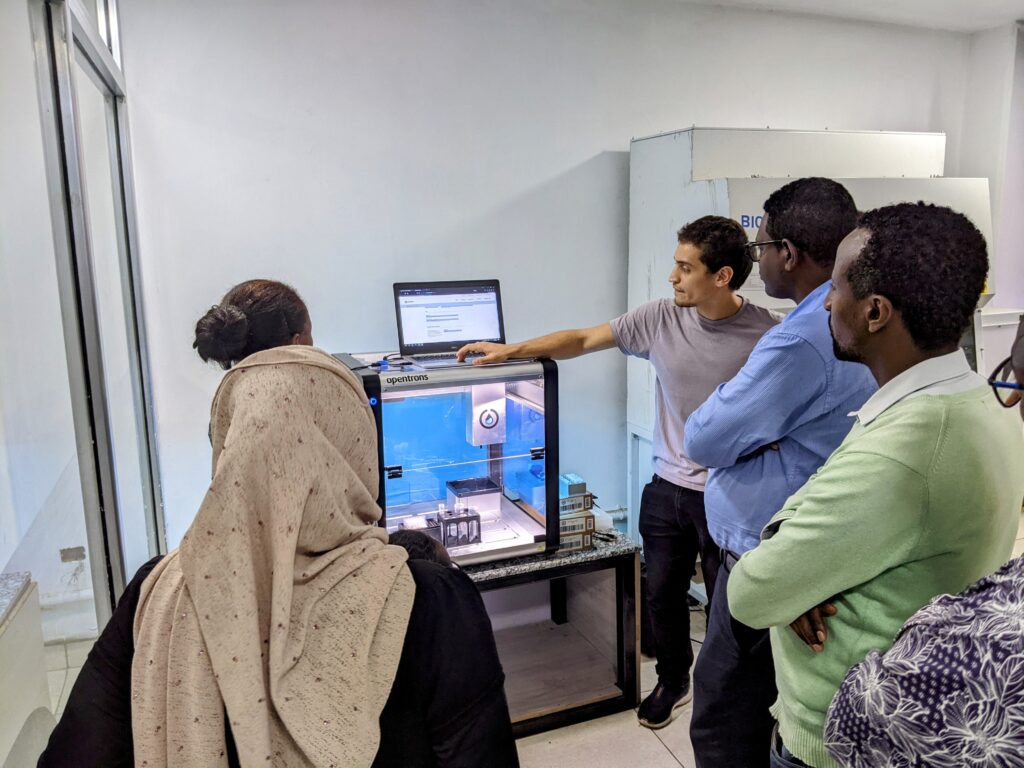
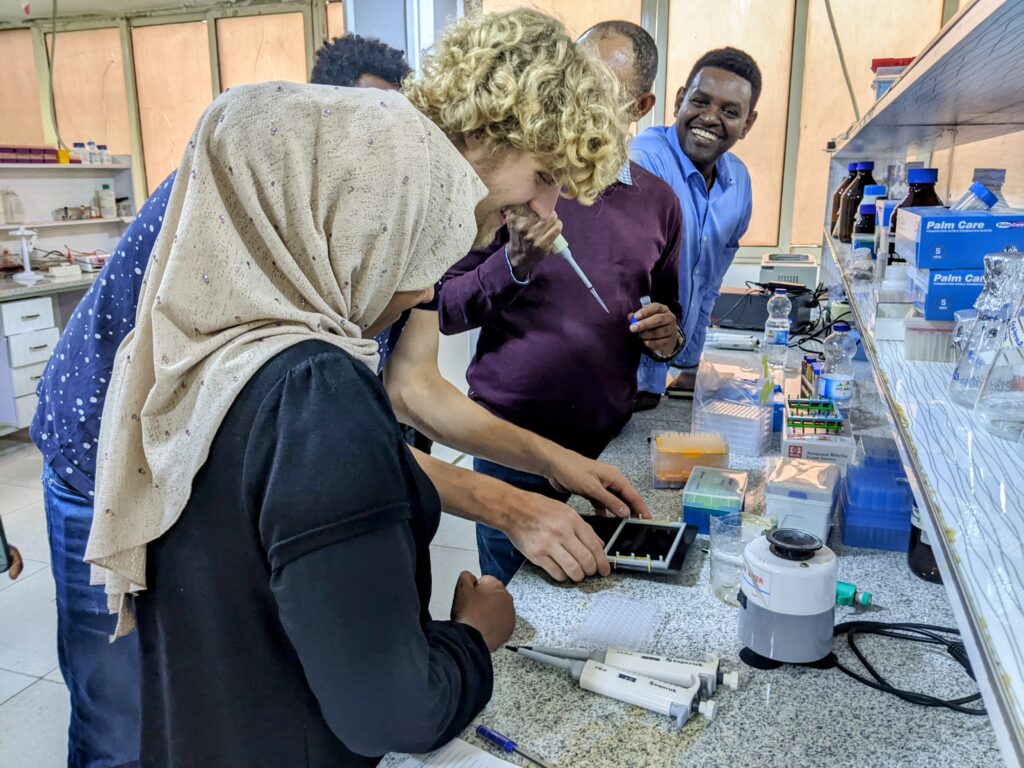
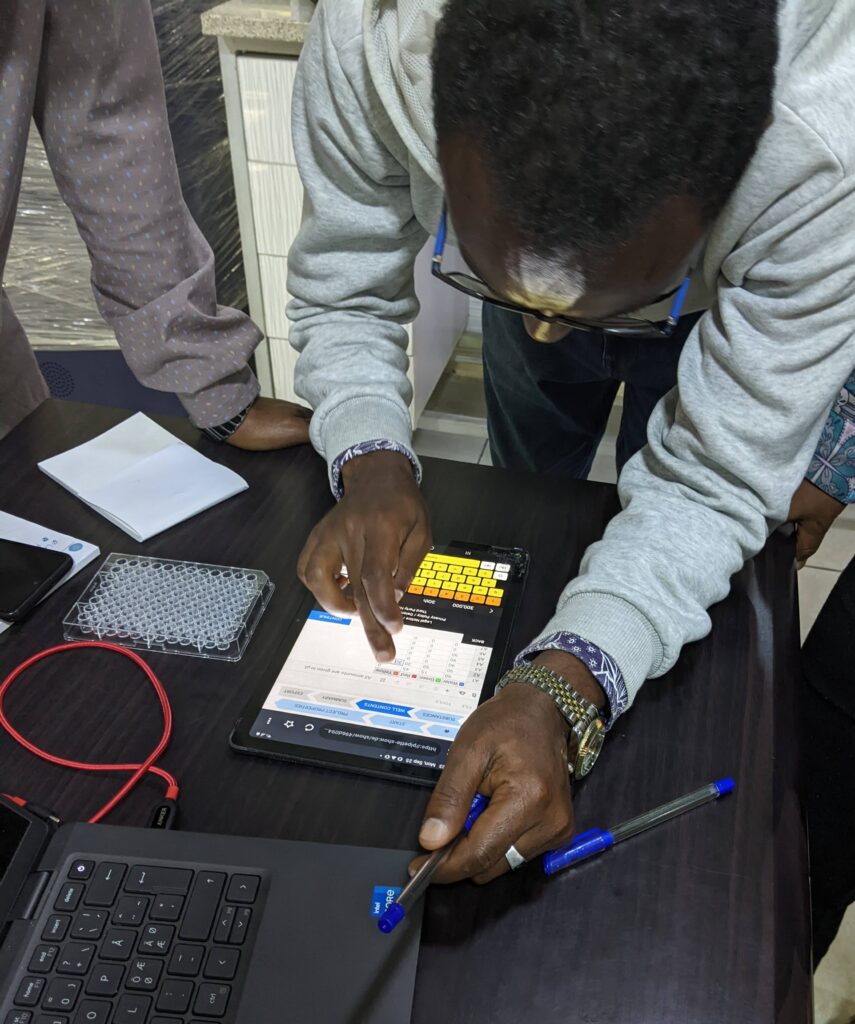
Designing custom automation protocols on the OpenTrons OT2
This advanced practical reviewed the use of for programming protocols on the OpenTrons OT2 robot. We covered how to get protocols from the OT Protocol Library, simulate them in the user’s computer and import it into the Opentrons app.
Bacillus subtilis spore display for sustainable enzyme immobilisation
Benedict Spanenkrebs introduced the technology of spore display as a means to rapidly scale-up bioproduction, with no need to purify the enzyme and the potential for increasing enzyme stability. This was followed by a practical where participants used spore-immobilised sucrose phosphorylase to reduce sugars and use the dinitrosalicylic acid (DNS) method to detect the reaction products through a colour change.
